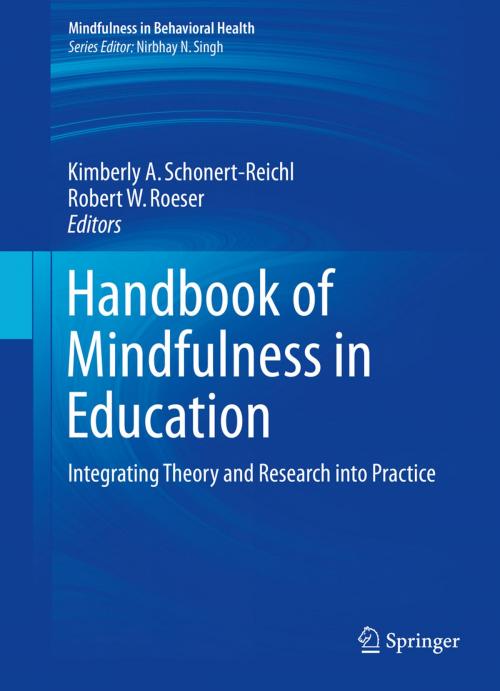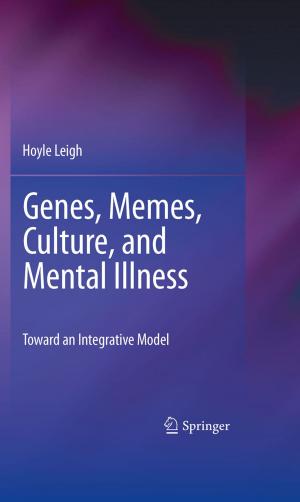Handbook of Mindfulness in Education
Integrating Theory and Research into Practice
Nonfiction, Reference & Language, Education & Teaching, Educational Theory, Educational Psychology, Health & Well Being, Psychology, Child & Adolescent, Child Development| Author: | ISBN: | 9781493935062 | |
| Publisher: | Springer New York | Publication: | February 29, 2016 |
| Imprint: | Springer | Language: | English |
| Author: | |
| ISBN: | 9781493935062 |
| Publisher: | Springer New York |
| Publication: | February 29, 2016 |
| Imprint: | Springer |
| Language: | English |
This handbook addresses the educational uses of mindfulness in schools. It summarizes the state of the science and describes current and emerging applications and challenges throughout the field. It explores mindfulness concepts in scientific, theoretical, and practical terms and examines training opportunities both as an aspect of teachers’ professional development and a means to enhance students’ social-emotional and academic skills. Chapters discuss mindfulness and contemplative pedagogy programs that have produced positive student outcomes, including stress relief, self-care, and improved classroom and institutional engagement.
Featured topics include:
-
A comprehensive view of mindfulness in the modern era.
-
Contemplative education and the roots of resilience.
-
Mindfulness practice and its effect on students’ social-emotional learning.
-
A cognitive neuroscience perspective on mindfulness in education that addresses students’ academic and social skills development.
-
Mindfulness training for teachers and administrators.
-
Two universal mindfulness education programs for elementary and middle school students.
The Handbook of Mindfulness in Education is a must-have resource for researchers, graduate students, clinicians, and practitioners in psychology, psychiatry, education, and medicine, as well as counseling, social work, and rehabilitation therapy.
This handbook addresses the educational uses of mindfulness in schools. It summarizes the state of the science and describes current and emerging applications and challenges throughout the field. It explores mindfulness concepts in scientific, theoretical, and practical terms and examines training opportunities both as an aspect of teachers’ professional development and a means to enhance students’ social-emotional and academic skills. Chapters discuss mindfulness and contemplative pedagogy programs that have produced positive student outcomes, including stress relief, self-care, and improved classroom and institutional engagement.
Featured topics include:
-
A comprehensive view of mindfulness in the modern era.
-
Contemplative education and the roots of resilience.
-
Mindfulness practice and its effect on students’ social-emotional learning.
-
A cognitive neuroscience perspective on mindfulness in education that addresses students’ academic and social skills development.
-
Mindfulness training for teachers and administrators.
-
Two universal mindfulness education programs for elementary and middle school students.
The Handbook of Mindfulness in Education is a must-have resource for researchers, graduate students, clinicians, and practitioners in psychology, psychiatry, education, and medicine, as well as counseling, social work, and rehabilitation therapy.















